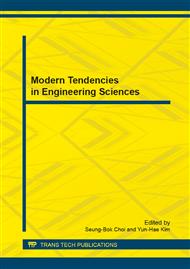[1]
N. N. El-Emam, R. A. S. A. Zubidy: New steganography algorithm to conceal a large amount of secret message using hybrid adaptive neural networks with modified adaptive genetic algorithm, Journal of Systems and Software, Vol. 86 (2013).
DOI: 10.1016/j.jss.2012.12.006
Google Scholar
[2]
M. Yaghini, M. M. Khoshraftar, M. Fallahi: A hybrid algorithm for artificial neural network training, Engineering Applications of Artificial Intelligence, Vol. 26 (2013), pp.293-301.
DOI: 10.1016/j.engappai.2012.01.023
Google Scholar
[3]
E. Heidari, S. M. Ghoreishi: Prediction of supercritical extraction recovery of EGCG using hybrid of Adaptive Neuro-Fuzzy Inference System and mathematical model, The Journal of Supercritical Fluids, Vol. 82 (2013), pp.158-167.
DOI: 10.1016/j.supflu.2013.07.006
Google Scholar
[4]
S. Akkoç: An empirical comparison of conventional techniques, neural networks and the three stage hybrid Adaptive Neuro Fuzzy Inference System (ANFIS) model for credit scoring analysis: The case of Turkish credit card data, European Journal of Operational Research, Vol. 222 (2012).
DOI: 10.1016/j.ejor.2012.04.009
Google Scholar
[5]
M. Zanaganeh, S. J. Mousavi, A. F. E. Shahidi: A hybrid genetic algorithm–adaptive network-based fuzzy inference system in prediction of wave parameters, Engineering Applications of Artificial Intelligence, Vol. 22 (2009), pp.1194-1202.
DOI: 10.1016/j.engappai.2009.04.009
Google Scholar
[6]
E. N. Dragoi, S. Curteanu, F. Leon, A. I. Galaction, D. Cascaval: Modeling of oxygen mass transfer in the presence of oxygen-vectors using neural networks developed by differential evolution algorithm, Engineering Applications of Artificial Intelligence, Vol. 24 (2011).
DOI: 10.1016/j.engappai.2011.06.004
Google Scholar
[7]
Y. Bodyanskiy, O. Vynokurova: Hybrid adaptive wavelet-neuro-fuzzy system for chaotic time series identification, Information Sciences, Vol. 220 (2013), pp.170-179.
DOI: 10.1016/j.ins.2012.07.044
Google Scholar
[8]
A. Azadeh, M. Rouzbahman, M. Saberi, F. Valianpour, A. Keramati: Improved prediction of mental workload versus HSE and ergonomics factors by an adaptive intelligent algorithm, Safety Science, Vol. 58 (2013), pp.59-75.
DOI: 10.1016/j.ssci.2013.03.004
Google Scholar
[9]
M. A. Ahmadi, M. Ebadi, A. Shokrollahi, S. M. J. Majidi: Evolving artificial neural network and imperialist competitive algorithm for prediction oil flow rate of the reservoir, Applied Soft Computing, Vol. 13 (2013), pp.1085-1098.
DOI: 10.1016/j.asoc.2012.10.009
Google Scholar
[10]
E. N. Dragoi, S. Curteanu, A. I. Galaction, D. Cascaval: Optimization methodology based on neural networks and self-adaptive differential evolution algorithm applied to an aerobic fermentation process, Applied Soft Computing, Vol. 13 (2013).
DOI: 10.1016/j.asoc.2012.08.004
Google Scholar


